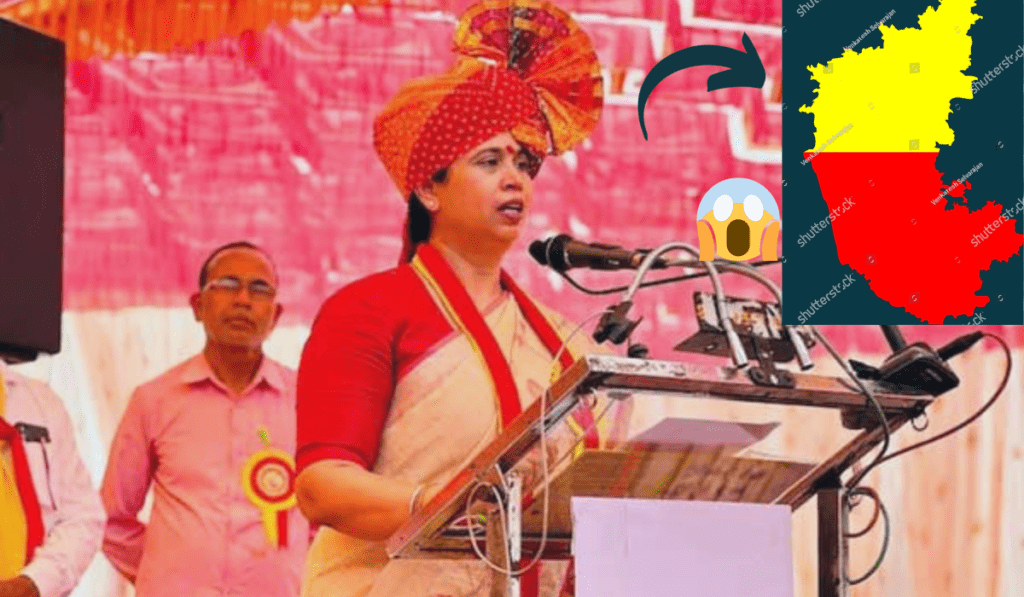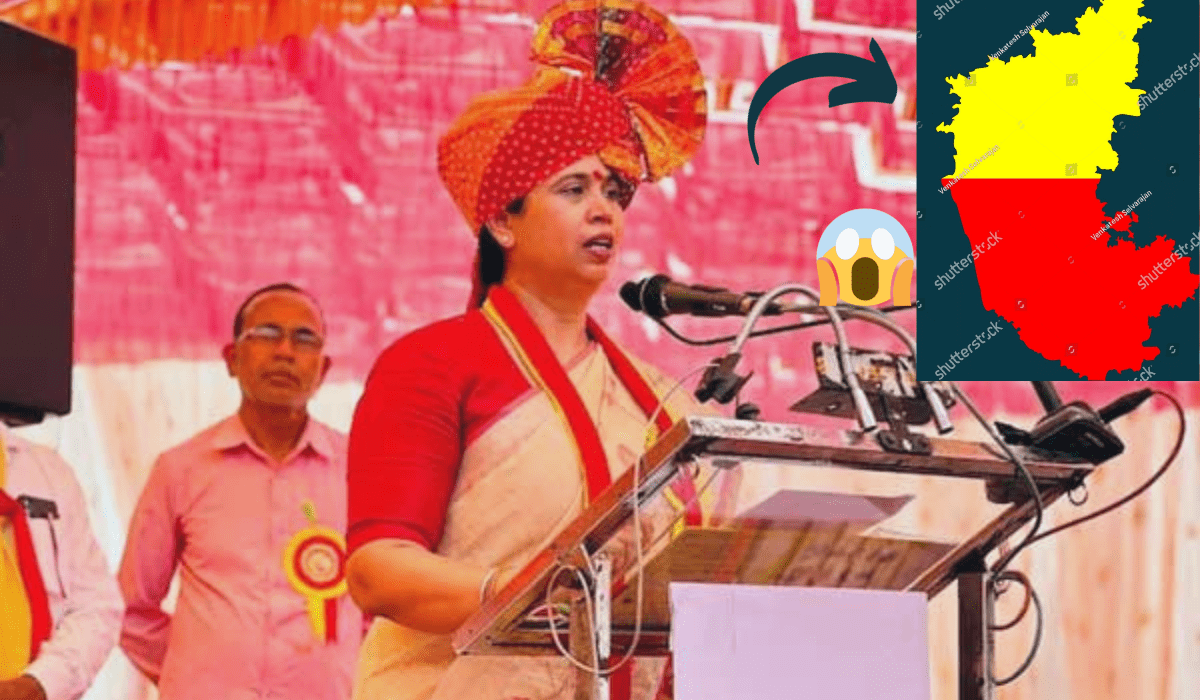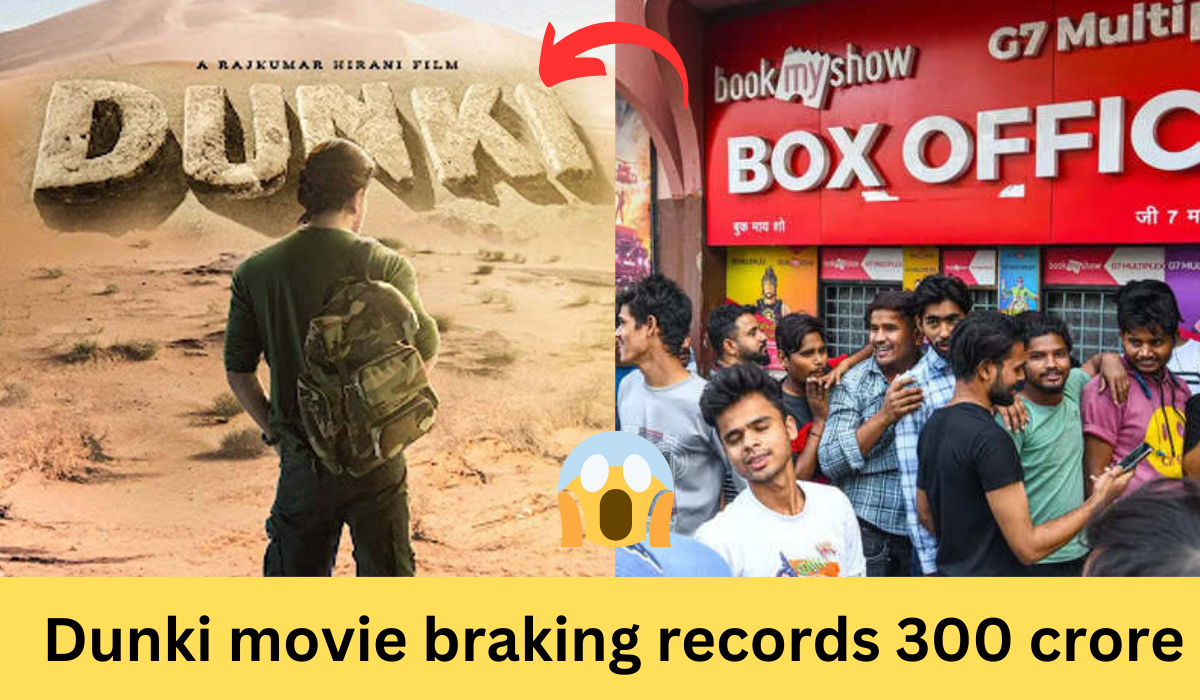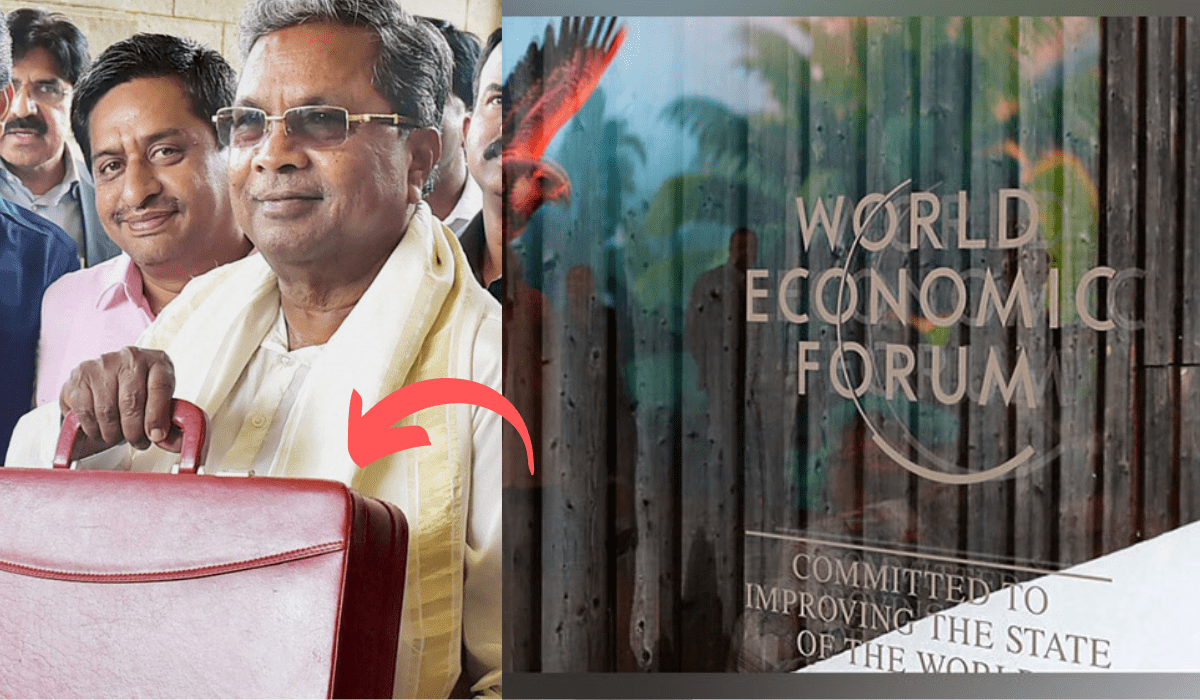District Belonged To Maharashtra Before Independence, Karnataka Minister Laxmi Hebbalkar Stokes Belgavi Row Says in a Video
In a recent twist, Karnataka’s Women and Child Welfare Minister, Laxmi Hebbalkar, has sparked controversy by claiming that Belagavi, a border district, belonged to Maharashtra before Independence. The controversial statement was made during the Sixth Kannada Convention at Karadga Village in Belagavi District.
Key Points:
- Hebbalkar’s statement has gone viral on social media, drawing attention to the historical debate over Belagavi’s ownership.
- The BJP has strongly criticized the minister’s remark, calling for her removal, while the Congress has remained silent on the issue.
Heated Reactions:
- BJP lawmaker SR Vishwanath asserted that Hebbalkar’s statement insulted the state and its people. He emphasized the historical unification of Belagavi with Karnataka and condemned the minister’s statement as politically motivated for vote bank gains.
- Former Deputy Chief Minister Dr CN Ashwath Narayan urged against revisiting history, highlighting that Belagavi indisputably belongs to Karnataka. He dismissed Hebbalkar’s statement as unnecessary and politically motivated, unlikely to garner support from either Kannada or Maratha communities.
Historical Context:
- The longstanding dispute between Karnataka and Maharashtra over Belagavi stems from the district’s mixed linguistic population, with a significant number speaking Marathi.
- The Maharashtra Ekikaran Samathi, advocating for Belagavi’s merger with Maharashtra, has clashed with pro-Kannadiga activists.

Presenting the Facts:
- Hebbalkar’s controversial statement raises questions about historical accuracy and the potential impact on regional sentiments.
- It is essential to emphasize that Belagavi has been an integral part of Karnataka, with the state government holding Assembly sessions in the district.
The Larger Debate:
- The controversy brings to light the ongoing struggle between linguistic and regional identities, as Belagavi becomes a focal point for political posturing.
- The dynamics between Karnataka and Maharashtra reveal the complexities of historical narratives and their impact on contemporary politics.
Public Reaction:
- The video of Hebbalkar’s statement has triggered widespread discussions on social media, with people expressing diverse opinions on the historical claims.
- Public sentiment remains divided, reflecting the broader tensions between linguistic and regional affiliations.
ತೆಪ್ಗೆ ಇರಕ್ಕೆ ಏನ್ ತೊಗೋತೀರ?
ಕನ್ನಡಿಗರಿಗೆ ಕ್ಷಮೆ ಕೇಳಲೇಬೇಕು ನೀವು @laxmi_hebbalkar #ಯಾರಪ್ಪಂದ್_ಏನೈತಿ_ಬೆಳಗಾವಿ_ನಮ್ದೈತಿ
— ಸುಷ್ಮಾ ಅಯ್ಯಂಗಾರ್। Sushma Iyengar (@malnadkoos) January 9, 2024
Conclusion: In conclusion, Hebbalkar’s assertion has ignited a fresh wave of debate surrounding Belagavi’s historical status. The controversy underscores the delicate balance between historical facts, political posturing, and regional sentiments. As Karnataka and Maharashtra continue to grapple with the unresolved issue, it is crucial to approach historical narratives with sensitivity and accuracy to promote a better understanding of the complex dynamics at play.





